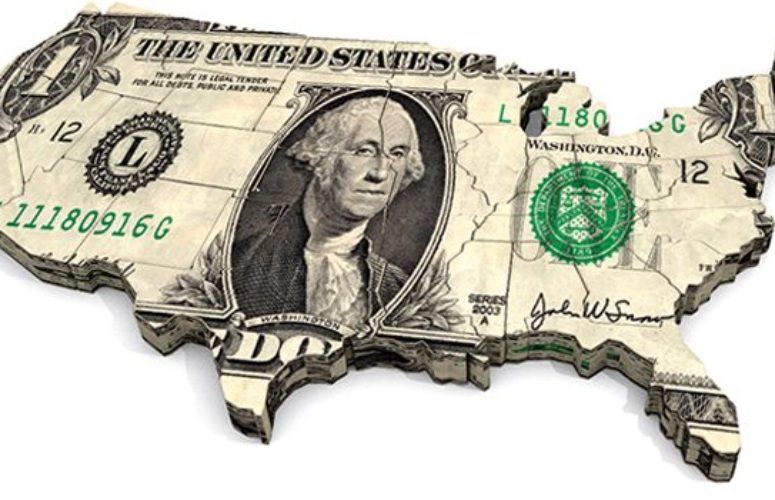
Christie Administration Saves New Jersey Employers $1 Billion in Taxes
On May 2, 2014The Christie Administration has announced that New Jersey employers will be spared $1 billion in taxes over the next five years as anti-fraud reforms and fiscal management practices undertaken during the Governor’s tenure render New Jersey’s Unemployment Insurance Trust Fund fully solvent.
“Through sound fiscal management and our anti-fraud measures, we have brought this important safety net back into the black years before many predicted. The immediate result is the end of annual, compounding tax increases on New Jersey employers, who we are relying upon to improve our economy and to create jobs for the Garden State,” said Harold J. Wirths, Commissioner of the Department of Labor and Workforce Development.
New Jersey’s Unemployment Insurance Trust Fund plunged into deficit in March 2009 after $4.6 billion in diversions over two decades, multiple tax table adjustments and a severe recession that forced the state to borrow federal funds to make benefit payments to large numbers of unemployed workers. The deficit triggered both state and federal laws designed to replenish the fund by severely increasing taxes on employers.
Anti-fraud measures and reforms undertaken by the Christie Administration rapidly improved the Trust Fund and moved it into a positive balance for the first time last year, eliminating a $213 million federal tax hike that New Jersey employers were facing in January under the Federal Unemployment Insurance Tax Act (FUTA). Today, the Trust Fund has moved into full solvency with a positive balance of more than $510 million, triggering annual, incremental tax rate reductions for employers projected to amount to at least $1 billion over five years.
The Trust Fund is financed largely by employer taxes, and the $1 billion reduction is linked to a tax scale created under state law that raises or lowers the rate employers must pay depending on the health of the Trust Fund. The new tax break is in addition to nearly $1 billion in state tax hikes already averted by New Jersey businesses since Governor Christie took office and signed bipartisan legislation to scale back the extent of Trust Fund tax increases triggered under New Jersey laws.
“The bi-partisan legislation lessened the tax bite that state law would have imposed on our employers during the recession,” said Commissioner Wirths. “The employers still had to pay a bit more in taxes each year, under law, but the hikes were smaller and gradual. By bringing the fund into solvency today, we have stopped additional hikes in state and federal taxes, and we are now able to scale back employer taxes.”
The Christie Administration acted on several reforms since 2010 to protect and improve the Trust Fund, including:
Anti-Fraud
- Approximately $440 million has been saved in the Trust Fund since anti-fraud measures were put into place, beginning in 2011, by the Department of Labor and Workforce Development.
- The first measure, the simple process of cross-checking Unemployment Insurance roles against the National Directory of New Hires to determine if claimants returned to work, has resulted in the bulk of the savings.
- Other major anti-fraud measures imposed included software installed to detect claims being illegally filed from foreign Internet Protocol or IP addresses and the Identity Verification checking that requires people filing Unemployment Insurance claims to answer questions to verify their identity.
Federal Treasury Offset Program or “TOPS”
- Recovered nearly $47 million since the program was implemented in June 2013
- Through TOPS, the Department of Labor has offset unemployment insurance
payments that were illegally collected by individuals by seizing refunds and deductions the individuals were due on their annual federal income tax. - The system is expected to net the fund another $30 million through 2015.
Cross-Match Against County Inmates
- $1.7 million has been saved since April 2013, when the Labor Department was able to augment its cross-checking against state prisoners collecting unemployment benefits to include a cross-check against inmates in county lock-ups.
Debit Card
- Moving from paper checks to debit cards and direct deposit for Unemployment Insurance payments, as well as Temporary Disability and Family Leave Insurance payments, helped to reduce fraud. While the savings due to prevented fraud cannot be fully measured, the state has saved $8 million annually in administrative costs by not using paper and postage.
End Diversions
- Between 1993 and 2006, taxes that were supposed to be paid into the Trust Fund were diverted toward other state projects and expenses, leaving the coffers low when the recession hit
· Bipartisan legislation, endorsed by Governor Christie, placed a measure on the November 2010 ballot that was resoundingly adopted by New Jersey voters to stop diversions from the Trust Fund.
Related Articles:





